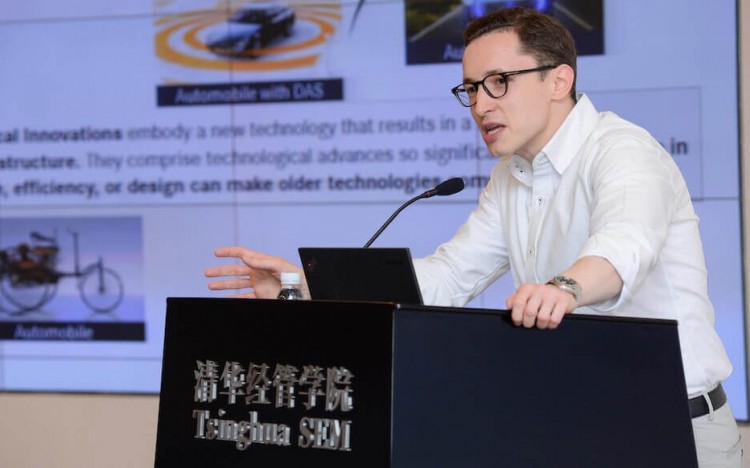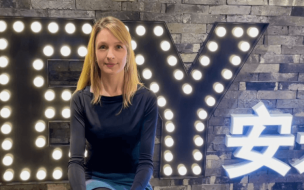Demand for MBA and EMBA talent is also strongest in the east, where 90% of employers planned to make MBA and EMBA hires last year.
That boded well for Urs Laeuppi, who graduated from the Tsinghua-INSEAD Executive MBA (TIEMBA)—ranked third in the Financial Times Executive MBA Ranking 2018—and now works in autonomous vehicles at Daimler.
An EMBA in China, combined with the global education Urs received as part of the TIEMBA program, put him in good stead to launch a career with a western corporation in the east, he says.
Modules are taught across four campuses, with students spending two weeks at INSEAD in Fontainebleau, three weeks in Singapore at INSEAD’s Asia Campus, a week in Abu Dhabi at INSEAD’s Middle East campus, and five weeks in Beijing.
How an EMBA in China bolstered my career
Urs says he chose the program because of the unique international exposure it offered and the combination of Asia knowledge from one of the best business schools in China, paired with a western outlook from INSEAD in France.
After having worked for Daimler in China for eight years, he graduated in 2012. Urs then joined Daimler in Germany, in a project management role. But, after a year, he transitioned back to China, moving to Beijing to work in Research & Development and to establish a joint research center for sustainable mobility for Daimler and Tsinghua University.
That led him to where he is today, as the research and development director for autonomous vehicles.
He highlights that Qian Yingyi, the former dean of the Tsinghua University School of Economics & Management, taught inspiring lessons on reforms in the Chinese economy which he still draws on now. He also credits the Tsinghua-INSEAD Executive MBA for giving him direct insight into how the Chinese economy is run.
Urs elaborates, enthusing that the TIEMBA program helped shape him into a more mature leader who could reflect well on how to build a business and release a team's full potential, generating sustainable progress.
And his experience on the program wasn’t without surprise—being in a classroom with professor Pascal Maenhout changed his outlook on corporate finance, a core course that piqued Urs’ motivation.
“I was new to the topic, but I became really motivated by the module,” he smiles. “Professor Pascal Maenhout made the subject accessible to those without a finance background, and everyone in the class was consequently very passionate about it.”
These classes cultivated a strategic and international long-term outlook in Urs. He affirms that he’s better at what he does now because of it, as the program equipped him with the ability to identify new trends and their driving forces.
Drawing on a global alumni network
The caliber of the cohort, Urs adds, really inspired and motivated his EMBA studies. This year’s class has 16 nationalities with an average of 14 years of professional experience each.
“You create learning in the classroom through discussion, this boosts the experience because you’re bouncing off your peers as well as faculty teaching,” he says.
By immersing himself in the Tsinghua-INSEAD Executive MBA network—comprising of Tsinghua SEM’s 120,000 plus alumni in more than 100 Chinese cities and spread over 30 countries, conjoined with INSEAD’s 58,000 members in more than 170 countries— Urs explains that he could learn from alumni and fellow EMBAs about how to improve presentation, interpersonal, and leadership skills.
The Leadership Development Program—based on the coaching work of INSEAD’s Global Leadership Centre—was also incredibly useful, he says. Working in small groups, teams deep dive into providing feedback for each other to harness and fulfil their potential.
The opportunity to collaborate with highly-experienced EMBA peers from around the globe and draw on a global alumni network is why you shouldn’t just go through the motions on the Tsinghua-INSEAD Executive MBA, a key piece of advice Urs says he would pass on to prospective students.
“It’s a part-time program but that doesn’t mean that you shouldn’t give it everything you’ve got,” he says. “Find out what you’re really interested in and be proactive in pursuing this.”






